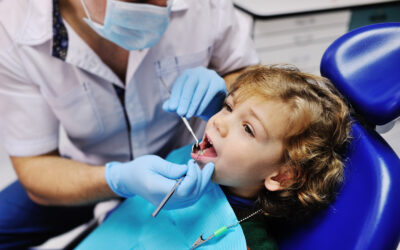What is Considered a Dental Emergency?

Defining a Dental Emergency
A dental emergency is any oral health issue that requires immediate attention to alleviate severe pain, stop persistent bleeding, or prevent the loss of a tooth. It may also involve conditions that pose a risk of infection or affect the ability to eat, speak, or breathe properly. In some cases, dental emergencies can have broader health implications if left untreated.
Common Types of Dental Emergencies
1. Severe Toothache
Intense, persistent tooth pain often indicates underlying issues such as advanced decay, an abscess, or an exposed nerve. If over-the-counter pain relievers and home remedies fail to provide relief, it’s time to seek immediate care.
2. Knocked-Out Tooth (Avulsion)
When a tooth is completely knocked out, quick action is vital. The chances of saving the tooth are highest if it is reinserted into the socket within an hour. Handle the tooth carefully by the crown (not the root), rinse it gently, and store it in milk or a tooth preservation solution until you can see a dentist.
3. Chipped or Broken Tooth
While minor chips may not always require urgent care, a large break exposing the tooth’s inner layers can lead to severe pain and infection. Preserve any fragments, rinse your mouth, and seek prompt dental attention.
4. Abscessed Tooth
A dental abscess is a painful infection at the root of a tooth or between the gum and a tooth. Symptoms include severe pain, swelling, fever, and a bad taste in the mouth. An abscess can spread to other parts of the body if untreated, making it a serious medical issue.
5. Lost Filling or Crown
A missing filling or crown leaves the tooth vulnerable to further damage and sensitivity. Temporary dental cement or wax can help protect the area until a dentist can provide a permanent solution.
6. Soft Tissue Injuries
Cuts, lacerations, or punctures to the tongue, cheeks, or gums that result in excessive bleeding may require immediate medical or dental care to prevent infection and ensure proper healing.
7. Broken Orthodontic Devices
Wires or brackets from braces that break or become loose can cause discomfort or injury to the soft tissues of the mouth. Cover sharp edges with dental wax and contact your orthodontist promptly.
Non-Emergency Dental Issues
Not all dental problems require urgent care. Here are a few examples of non-emergencies:
- Minor tooth sensitivity
- Small chips without pain or sharp edges
- Lost dental appliances like retainers (unless they’re causing significant issues)
- Cosmetic concerns, such as a stained or slightly misshapen tooth
For these issues, it’s usually safe to wait for a regular dental appointment.
What to Do in a Dental Emergency
- Assess the Situation: Determine if the issue involves severe pain, bleeding, or potential tooth loss.
- Contact Your Dentist: Many dental offices have emergency services or after-hours contact information. Explain your symptoms clearly.
- Take Precautions: Use cold compresses for swelling, apply gentle pressure to control bleeding, and avoid eating or drinking anything that may aggravate the condition.
- Visit an Emergency Room: If you’re unable to reach a dentist and the issue is life-threatening (e.g., difficulty breathing or swallowing), go to the nearest emergency room.
Preventing Dental Emergencies
- Maintain good oral hygiene: Brush and floss daily to prevent decay and gum disease.
- Wear a mouthguard: Protect your teeth during sports or high-risk activities.
- Avoid chewing hard objects: Ice, pens, and hard candies can lead to cracks or chips.
- Schedule regular dental checkups: Early detection of potential problems can prevent emergencies.
Conclusion
Knowing what constitutes a dental emergency can help you act quickly and effectively to protect your oral health. Whether it’s a severe toothache, a knocked-out tooth, or a dental abscess, timely intervention can make all the difference. Always keep your dentist’s contact information readily available and don’t hesitate to seek care when in doubt—your smile depends on it!



